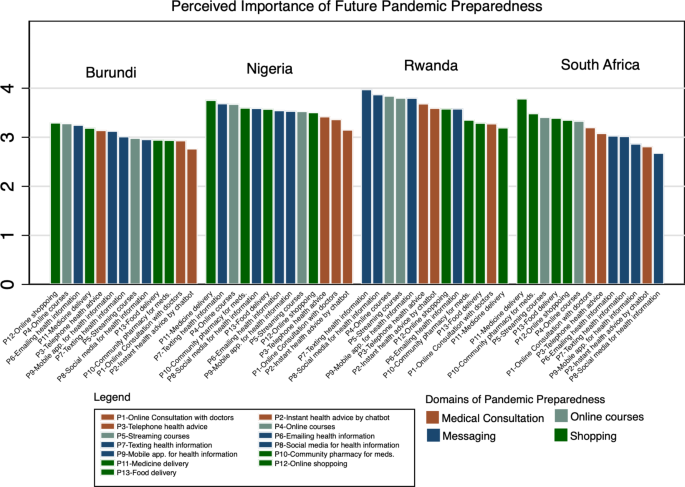Study Reveals Link Between E-Health Literacy and Perception of Future Pandemic Preparedness in SSA Countries

A new study has made significant findings on the association between e-Health literacy and perception of future pandemic preparedness in Sub-Saharan African (SSA) countries.
The study, which is considered to be the first of its kind in this region, analyzed data from over 1,000 participants across eight countries, including Burundi, Rwanda, Nigeria, South Africa, among others. The results revealed that individuals with higher e-Health literacy scores perceived more elements as being important for future pandemic preparedness.
The study found that South Africa had the highest mean score of e-Health literacy, while Burundi had the lowest. The disparity in e-Health literacy across countries was attributed to differences in internet penetration levels, with countries like South Africa and Rwanda having high internet penetration rates, whereas others like Burundi and Nigeria had much lower rates.
In terms of perceived importance of future pandemic preparedness, online shopping was deemed as the most significant aspect by participants from most countries, except for Rwanda. The study also found that receiving health information through text messaging and mobile apps was a preferred method in Rwanda, as seen with the use of the RapidSMS system.
However, the study noted that online medical consultation was viewed as less significant in participating nations, especially in Nigeria and Burundi, due to limited internet services and low e-Health literacy levels. Despite these limitations, the researchers argued that fostering online medical consultation could increase access to convenient healthcare services.
The study's findings have several implications for pandemic preparedness efforts in SSA countries. Firstly, it highlights the importance of improving digital infrastructure, including internet availability and affordable electronic devices, to enhance e-Health literacy and access to health information. Second, it emphasizes the need for targeted health intervention strategies that take into account the language proficiency essential for health literacy.
However, the study also acknowledges several limitations, including the self-administered questionnaire which may have led to social desirability bias and a lack of generalizability due to convening design that biases towards more privileged individuals. These limitations emphasize the need for future studies using alternative methodologies to further investigate this critical issue.
Overall, the study provides valuable insights into the association between e-Health literacy and perception of future pandemic preparedness in SSA countries, which can inform policy and practice efforts to improve communication and healthcare access during pandemics.
